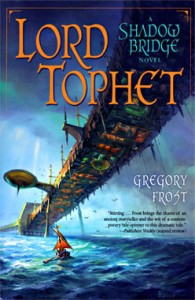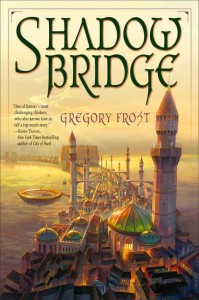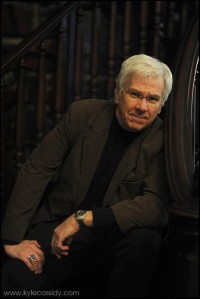Growing up, I wanted to draw comics. If you’d gotten ahold of my notebooks from middle school on, you’d have found the margins (and sometimes whole pages) filled with pen drawings of superheroes and other such byproducts of a life spent between the covers of DC and Marvel.
My high school art teacher encouraged me to choose art as a college major, and thinking I would blossom into an illustrator, I went for it.
Then, in the final semester of my second year of art school, I took a night class in Creative Writing. (Is there somewhere a class called “Noncreative Writing”?) I can no longer remember the name of the woman who led this class, but she quickly managed to shake up my little art major’s snow globe of a brain. I began writing short stories. They were all derivative, ideas and plots stolen from Rod Serling, Richard Matheson, Ray Bradbury, and anyone else whose sf, fantasy, and horror fiction had graced the pages of Playboy magazine. To this day nobody believes me when I say I kept a collection of Playboy going back to about 1964, for the fiction.
Some threshold got crossed in that semester, though. In my third year as an art major, I could not maintain my interest in it. I missed afternoon studios. It’s extremely difficult to fail art classes in drawing and painting, but I was giving it a shot.
When finally my off-campus apartment was gutted by a fire, destroying six semesters-worth of paintings and drawings (oil on canvas  makes an excellent combustible) while by some bizarre fluke leaving a story I was working on intact, it really was divine-intervention overkill.
makes an excellent combustible) while by some bizarre fluke leaving a story I was working on intact, it really was divine-intervention overkill.
Most authors I know were sure they wanted to be writers from the time they were six. Some claim they were composing poetry in the womb. My addiction began late.
A year passed during which I tried twice to write a novel. The first one was 68 pages long. Yeah, I knew what I was doing all right.
The second one was at least more or less the right length at 250 manuscript pages. I had by then read a couple of books by David Gerrold about his experiences writing for Star Trek, and knowing nothing about proper etiquette, I sent him a fan letter in which I explained (apparently rationally) that I’d written a fantasy novel and did not know what to do with it now that I had. Knowing no more than that, David Gerrold sent me a letter of introduction to Lin Carter, the editor of the Ballantine Adult Fantasy series. I attached this gracious letter to my manuscript, boxed it and sent it to New York. It was rejected. But–and perhaps because of David’s kindness–Lin Carter sent with the rejection a line by line analysis of the first ten pages of the book. While ten pages was probably all anyone could have endured without falling into a state of gibbering madness, Mr. Carter had also done me an incredible kindness.
Soon after that, I was accepted at the University of Iowa, where I met and was taught by the likes of T.C. Boyle and Joe Haldeman. T. Boyle introduced me to Joe–another kindness. And Joe encouraged me to submit two stories along with an application to the Clarion workshop at MSU. I’d never heard of it.
 At Clarion in short order I found myself in a one-on-one conference with Samuel R. Delany. This was like sitting before God while he gently exposed your inadequacies. And they were formidable inadequacies. Delany did not for a second let me off the hook. It hurt. It was supposed to.
At Clarion in short order I found myself in a one-on-one conference with Samuel R. Delany. This was like sitting before God while he gently exposed your inadequacies. And they were formidable inadequacies. Delany did not for a second let me off the hook. It hurt. It was supposed to.
I could say that all of these mentors were just doing the job they were paid to, but I don’t think so–certainly not David Gerrold or Lin Carter.
I think that on some level I must have expressed the excitement that writing kindled in me; and they, recognizing the nascent addict before them, went further than they had to–what’s nowadays referred to as “paying it forward.”
I heard Joe Haldeman not long ago tell an audience that a writer needs three things: Talent (and you don’t need much), perseverance (a heap of that), and luck. The luck, he said, is the thing that’s out of your control. Which may be true, but sometimes your luck is made through the generosity of strangers. As a teacher of writing I’ve tried to remember what these people did for me and when confronted by a young addict, to serve an occasional helping of that myself. Remember, kid, the first one’s always free.
Bio:
GREGORY FROST is a writer of best-selling fantasy, science fiction, and thrillers. He has been a finalist for every major sf and fantasy award. His latest work is the duology Shadowbridge and Lord Tophet. Voted one of the best fantasy novels of the year by the American Library Association, it was also a finalist for the James Tiptree Jr. Award in 2009 and received starred reviews from Booklist and Publishers Weekly. His previous novel, the historical thriller, Fitcher’s Brides, was a finalist for both the World Fantasy and International Horror Guild Awards for Best Novel. His latest short story, “The Dingus” leads off in Ellen Datlow’s anthology Supernatural Noir, out in June. He also directs the fiction workshop at Swarthmore College in Swarthmore, PA.



































